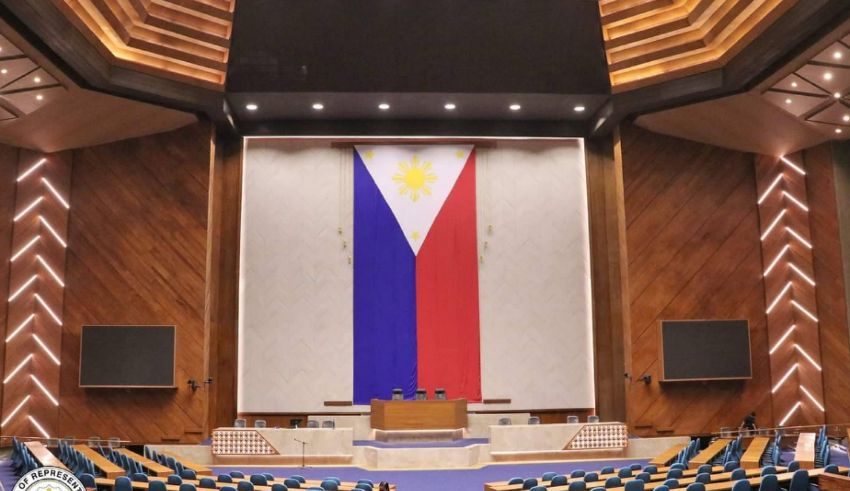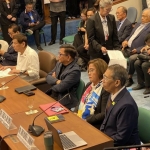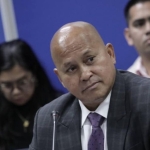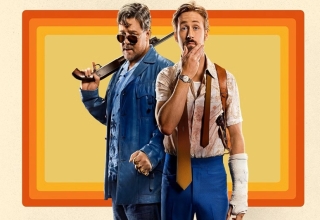
By submitting House Bill No. 11004, the proposed Public Health Approach to Drug Use Act of 2024, newly inaugurated congressman Percival Cendaña made news on Monday. This measure seeks to outlaw drug lists, “tokhang” operations, and other dubious tactics applied in former President Rodrigo Duterte’s anti-drug campaign, resulting in thousands of deaths. Presented by Cendaña from the Akbayan party list, this measure suggests a change toward a compassionate, health-conscious strategy to handle drug use, therefore classifying it as a public health concern rather than a crime.
A Bill Deductible for a Victim
Inspired by Kian Loyd delos Santos, Cendaña’s proposed bill—also known as the Kian bill in memory—aims to stop future incidents like the one involving 17-year-olds. Caloocan City police shot Delos Santos dead in August 2017 after classifying him as a suspected drug offender. Although they said he resisted arrest, it turned out the cops had dragged him from his house, battered him, and fired close range shots. This incident aroused public indignation and became a turning point in the discussion on the atrocities of Duterte’s drug war.
Between 2016 and 2022, official statistics published by the Philippine Drug Enforcement Agency (PDEA) showed nearly 6,000 deaths stemming from Duterte’s anti-drug operations. Human rights supporters, however, believe the real death toll could be 30,000, mostly affecting underdeveloped areas. Many of these deaths were connected to police and vigilante activity, usually without strong proof tying individuals to drug-related charges.
Prominent attorney Chel Diokno mentioned in a House human rights committee hearing earlier this year a 2018 Supreme Court ruling including 20,322 drug war-related deaths from mid-2016 to late 2017. Of them, 3,967 were formally recorded as deaths during police operations while 16,355 more were linked to an unidentified assailant.
Proceeding toward a Solution Based on Health
Previously a commissioner for the National Youth Commission, Cendaña said in Filipino that his measure provides alternatives for “violence and bullets” with rehabilitative care and support, therefore promoting a more compassionate approach to drug dependence. Emphasizing the importance of community-based health interventions, Cendaña underlined that drug abuse is a complicated health problem needing a coordinated response of social support and treatment instead of punitive actions.
Both chambers of Congress have approved the measure; Senator Risa Hontiveros currently has a comparable resolution under development in the Senate. Both measures rely on the Outcome Report of the Joint Program for Human Rights in the Philippines, which attacked Duterte’s drug war for focusing on low-level offenders while neglecting those who really fuel the drug trade. According to the report, a changed strategy should concentrate on rehabilitation instead of punishment and deal with the underlying socioeconomic causes of drug addiction.
Keep Reading
Forbidden Behaves Under the Proposed Law
Should House Bill No. 11004 be approved, a number of tactics connected to the Duterte-era drug war will be outlawed, therefore addressing violations of rights like privacy, health, and due process. Particularly forbidden would be specific acts like:
- Both mandated and random drug testing
- Legal intrusions of privacy
- Abuse include physical punishment and torture
- involuntary imprisonment and treatment
- Harm—psychologically and physically—from drug treatment programs
- Ignoring patients’ need to be informed about pharmacological treatment hazards
- Denial of medical treatment grounded on drug use past
- Drug policy and program information misrepresentation
- Public officials, medical professionals, and other accountable parties found guilty of using these outlawed methods could pay heavy fines.
Part of a larger legislative endeavor to remedy the injustices connected to the drug policy of the past government is House Bill No. 11004. The quad committee on human rights of the House of Representatives published results last month linking many state officers to drug-related violations. Thirteen lawmakers then submitted House Bill No. 10986, sometimes known as the Anti-Extrajudicial Killing Act, to hold individuals guilty for illegal deaths during the drug war.
Emphasizing the need for responsibility in his inaugural address to Congress during its present session, Speaker Martin Romualdez said the House is on the “right side of history.” He underlined the chamber’s dedication to researching the divisive past policies in order to stop a recurrence to what he called the “dark and evil” age of unbridled bloodshed.
The change toward a public health-oriented approach marks a major divergence from earlier approaches as the legislative initiatives develop. This suggested modification emphasizes how aware the country is of drug use as a complicated, multifarious problem needing more than just punitive policies. The measure provides persons suffering with drug use with chances for rehabilitation and reintegration into society, therefore addressing the underlying reasons of drug dependence. Should the measure be passed, the bill might establish a standard in the Philippines and act as a guide for other nations facing comparable problems.



























